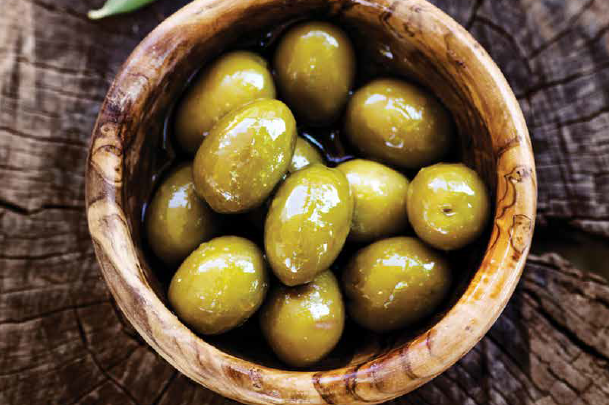
Imagine being 90 (or 100) and having the sharp memory and cognitive skills of your younger self. It’s possible with a few lifestyle tweaks, some of which involve your taste buds. Yes, you can literally eat your way to a healthy brain.
Genes and lifestyle
Faulty genes can increase the risk of cognitive decline and memory loss, but the acquired lifestyle-related risks seem to affect our brains more.
“When we consume unhealthy foods, our brain and body are out of balance, so restoring it [balance] means we must eat as many whole foods as possible,” says Orsha Magyar, MSc, RHN, who is the founder of Calgary-based NeuroTrition.
“I believe that overall brain function can improve if we switch to a healthy diet, and we can age our brains more gracefully,” advises Magyar.
A healthy diet, sleep, exercise, and challenging our brains by learning new things are all essential for mental health. Add to this socializing and managing stress (high levels of stress-inducing cortisol can increase dementia risk).
The elephant in the room: Alzheimer’s disease
Alzheimer’s disease (AD) is the most common type of progressive dementia. It involves loss of memory and cognitive function, which affects language and orientation skills, and it is, unfortunately, incurable.
The two markers of AD, amyloid plaques and neurofibrillary tangles, can be the result of brain inflammation, caused by aging but can also be a product of an unhealthy diet.
It is expected that the number of people with dementia will triple by 2050.
Your brain is … what you eat?
A diet rich in antioxidant vitamins such as A, E, and C from vegetables and fruits, polyphenols (think colours!), unsaturated fats, and plenty of fibre (gut bacteria preferred) can lower levels of body and brain inflammation and reduce oxidative stress.
Saturated and trans fats, present in animal products such as dairy and meat, can have a negative impact on cognition and memory.
“Animal products are high in omega-6 fatty acids, which has been linked to inflammation [if],” says Magyar. In her opinion, a healthy, anti-inflammatory diet is mostly plant based, which does not have to be exclusively vegan but should consist of unprocessed, unrefined whole foods.
Mind the microbiome
Age-related changes in our gut microbiome and an unhealthy diet can increase brain inflammation and precipitate neurodegeneration.
You can boost the number of good bacteria that secrete short-chain fatty acids (SCFAs, which are anti-inflammatory) by making prebiotics, probiotics, and fibre part of your daily meals.
Eat fibre-rich meals that include beans or lentils and colourful salads with leafy greens and other fresh veggies. Add brain-protective spices and herbs for flavour.
The spices of cognitive function
- Herbs such as rosemary, sage, or lemon balm may boost attention and improve cognitive function.
- Curcumin, the anti-inflammatory compound found in turmeric, may also boost cognitive function.
- Polyphenolic compounds found in green tea, citrus, and cinnamon have strong anti-inflammatory effects.
Choose a brain-protective diet
High in fruits and vegetables, whole grains, nuts and legumes, olive oil, fish, and the occasional glass of red wine, the Mediterranean diet is possibly the healthiest, says Magyar, and has long been associated with a decreased risk of dementia and other chronic diseases.
A 2020 study found that a variation of the Mediterranean diet that’s high in fish and vegetable consumption, with low alcohol, provided the best protection against cognitive impairment, even in people at risk genetically.
Not a fish eater? The MIND diet (a hybrid of the Mediterranean and DASH diets) is mostly plant based, encourages high consumption of berries and leafy greens with barely any fish, and has been found highly effective in AD prevention.
Whichever variation you choose, observe the 80/20 rule, says Magyar, unless you have an inflammatory condition. Stick to healthy whole foods for 80 percent of your diet and indulge occasionally (the remaining 20).
Supplement when needed
Aging affects our ability to absorb nutrients, as do certain diets and health conditions. For example, a healthy brain requires appropriate levels of vitamin B12, vitamin D, and docosahexaenoic acid (DHA, an omega-3 fatty acid found in fish) so if absorption is affected, supplements can help. But, says Magyar, “the focus should be on whole foods, since supplements are meant to add to a diet rather than replace it.”
Protein intake
Research has shown that if you’re 65 years old and under, eating too much animal protein can increase the risk of chronic disease mortality. Past 65, however, higher protein consumption proves useful in maintaining a healthy weight without the negative effects.























